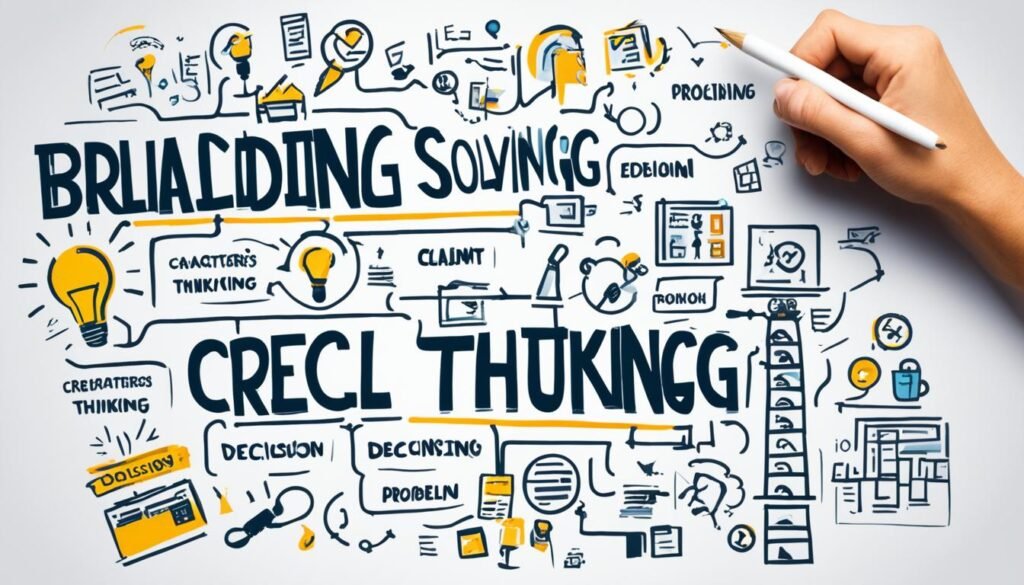Recent graduates, are you eager to make a strong impression in the competitive job market? In the United Arab Emirates, employers are seeking candidates who possess the skills they desire. By understanding what these skills are, you can enhance your employability and increase your chances of landing your dream job.
One American online university in Missouri can provide you with a comprehensive education and equip you with the skills that employers are looking for. Say hello to The Continents States University. With master’s degree programs that can be completed in less than a year, this university can fast-track your journey to success.
So, what exactly are the skills that employers seek in recent graduates? Let’s explore the key areas that can help you stand out to employers.
Communication and Interpersonal Skills
Effective communication and strong interpersonal skills are crucial attributes that employers highly value in potential candidates. The ability to communicate clearly and professionally, both verbally and in writing, is essential in the workplace. It enables smooth collaboration, enhances teamwork, and facilitates the exchange of information and ideas.
Employers are not only looking for individuals who can articulate their thoughts effectively, but also those who can actively listen and understand the perspectives of others. This level of effective communication fosters better relationships and promotes positive interactions among team members.
Furthermore, the ability to work well in teams and collaborate with colleagues towards shared goals is a sought-after skill. Employers recognize the significance of fostering a collaborative work environment that promotes innovation and productivity. They look for candidates with strong interpersonal skills who can build rapport, show empathy, and effectively engage with others.
By demonstrating exceptional communication and interpersonal skills, you can set yourself apart from other candidates and showcase your value as an asset to any organization. These skills not only contribute to a positive work environment but also enhance your overall professional growth and career development.
Why Communication and Interpersonal Skills Matter
- Clear and effective communication ensures that messages are understood and tasks are executed accurately.
- Interpersonal skills foster positive relationships, teamwork, and collaboration.
- Collaboration leads to increased productivity, innovation, and problem-solving.
- Well-developed communication and interpersonal skills enable you to build strong professional networks.
To further highlight the significance of communication and interpersonal skills in the workplace, let’s take a look at the following scenario:

In a team project, effective communication allows team members to clearly express their ideas, understand their roles and responsibilities, and align their efforts towards a common objective. By utilizing their interpersonal skills, team members can build trust, resolve conflicts, and collaborate harmoniously, resulting in a successful project outcome.
Problem-Solving and Critical Thinking
When it comes to securing a job in the competitive UAE job market, employers are seeking graduates who possess problem-solving and critical thinking skills. These skills play a vital role in the workplace, as they enable individuals to analyze complex situations, identify potential solutions, and make informed decisions.
An individual with strong problem-solving and critical thinking abilities can approach challenges with a creative mindset, thinking outside the box to come up with innovative solutions. This kind of proactive and analytical approach is highly valued by employers, as it demonstrates an individual’s ability to navigate and overcome obstacles.
Developing problem-solving and critical thinking skills can give you a distinct advantage in the job market. By honing these skills, you can showcase your ability to think critically, assess different perspectives, and arrive at well-informed decisions. These skills are not only beneficial in your professional life, but they also contribute to personal growth and development.
How to Develop Problem-Solving and Critical Thinking Skills
- Engage in challenging tasks and projects that require you to think critically and find solutions.
- Break down complex problems into smaller, more manageable components to tackle them effectively.
- Seek out opportunities to collaborate with others, as teamwork can enhance problem-solving abilities.
- Stay curious and constantly seek new knowledge and information to broaden your perspective.
- Practice decision-making by weighing the pros and cons of different options and analyzing potential outcomes.
- Embrace diverse perspectives and actively listen to others’ ideas and opinions to foster critical thinking.
By incorporating these strategies into your daily life and academic pursuits, you can sharpen your problem-solving and critical thinking skills, making yourself an attractive candidate to potential employers.

Developing these valuable skills will not only help you secure your dream job but also set you apart from other candidates in the competitive job market. Employers are on the lookout for individuals who can approach challenges with a fresh perspective, think analytically, and make sound decisions. So, invest in honing your problem-solving and critical thinking abilities, and take the first step towards a successful career.
Adaptability and Flexibility
In today’s rapidly changing world, employers are looking for candidates who can adapt to new situations and embrace change. The ability to demonstrate resilience and thrive in dynamic environments is highly desirable. Employers want employees who can remain flexible and open-minded, capable of adjusting their approach and strategies as needed.
Showing your adaptability and flexibility can be the key to standing out to employers. By being willing to take on new challenges and embrace different perspectives, you can demonstrate that you are ready to contribute to an organization’s success in a rapidly evolving marketplace.

Adaptability and flexibility are closely related to effective change management. Employers value candidates who can navigate transitions, whether it’s implementing new technologies or adapting to shifting business models. The ability to quickly adapt to changes and adjust strategies accordingly is essential in staying competitive in today’s ever-changing world.
Employers recognize that adaptability and flexibility are skills that can be honed and developed. By showcasing your willingness to learn, grow, and adapt to changing circumstances, you can position yourself as an asset to any organization.
Recruiters and hiring managers are looking for candidates who bring more than just technical expertise to the table. They want individuals who can bring fresh perspectives and navigate uncertainty with confidence. Highlighting your ability to adapt and be flexible can set you apart from other candidates and increase your employability in the United Arab Emirates job market.
Conclusion
In order to stand out in the job market, recent graduates in the United Arab Emirates need to develop the skills that employers are looking for. Communication and interpersonal skills, problem-solving and critical thinking abilities, as well as adaptability and flexibility, are highly valued by employers. By focusing on these desirable skills and continuously learning and improving, you can increase your employability and differentiate yourself from other candidates.
Effective communication and strong interpersonal skills are essential in the workplace. Being able to communicate clearly and professionally, both verbally and in writing, is highly valued by employers. Additionally, employers look for candidates who can work well in teams and collaborate with others to achieve shared goals.
Employers also seek graduates who can effectively solve problems and think critically. The ability to analyze complex situations, identify solutions, and make informed decisions is highly valuable. Developing your problem-solving and critical thinking skills can give you a competitive edge.
In today’s rapidly changing world, employers value adaptability and flexibility. Demonstrating resilience and the ability to thrive in dynamic environments is highly desirable. Employers want employees who can adjust their approach and strategies as needed. By showcasing your adaptability and flexibility, you can demonstrate that you are ready to take on new challenges and contribute to an organization’s success.


